City at forefront of sector, giving injured competitors a shot at their dreams
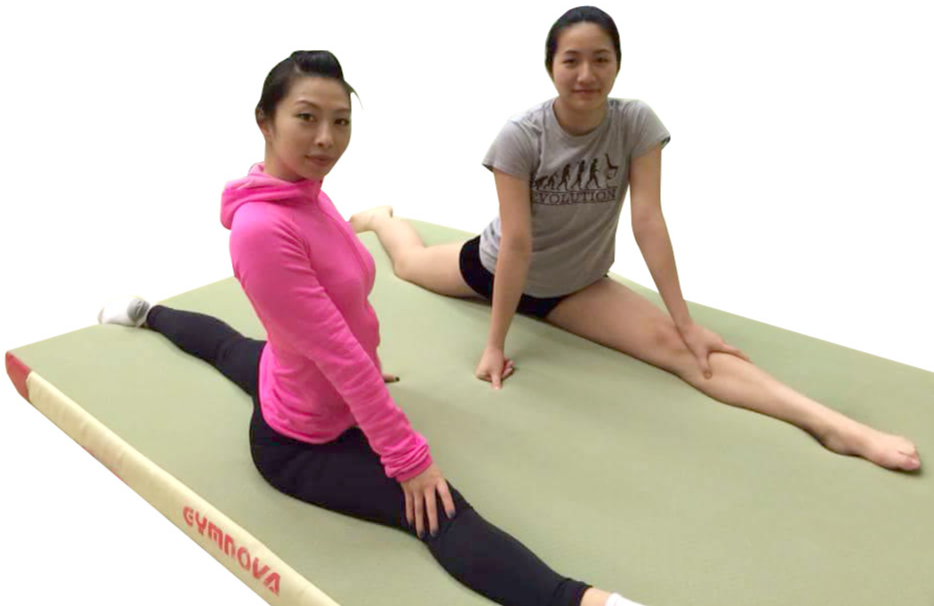
In 2022, Hong Kong squash player Abbie Leung Ka-huen faced a career crisis when a knee injury shattered her dreams at the Asian Junior Individual Championships. A year later, she made a remarkable comeback, clinching two medals in international competitions.
While the knee injury was minor, she still remembers the helplessness she felt when it happened. The tough situation was compounded by the lack of a sports therapist on-site to help her assess how bad it was.
"I didn't know why my knee was swelling, what to do to ease the pain in my leg, or whether I should continue to compete at full strength," Leung said.
READ MORE: Survey: Olympic triumph boosts HK social cohesion
Upon returning to Hong Kong, she immediately sought help from sports medicine specialists. After a year of rehabilitation, Leung successfully returned to the court, winning a silver medal at the 2023 Asian Junior Squash Team Championships, and the bronze at the 2024 Asian Junior Squash Individual Championships.
However, not every athlete is as fortunate as Leung.
In 2012, Angel Wong Hiu-ying became the first female Hong Kong gymnast to participate in Olympic Games. Three years later, while preparing for the 2016 Rio Olympics, she suffered a severe knee injury when attempting a landing, and tore all the cruciate ligaments in her left knee.
She was flown to Hong Kong and had multiple surgeries to painstakingly repair each ligament. For two years, Wong underwent intensive rehabilitation, including psychological risk assessment, and resumed rigorous training.
"During the time I was injured, I had a lot of negative thoughts. I would worry and feel anxious, as you don't really know what's ahead," she said.
Wong said facing such challenges at the peak of her gymnastics career was deeply disheartening, but added that injuries are a challenge every athlete must confront.
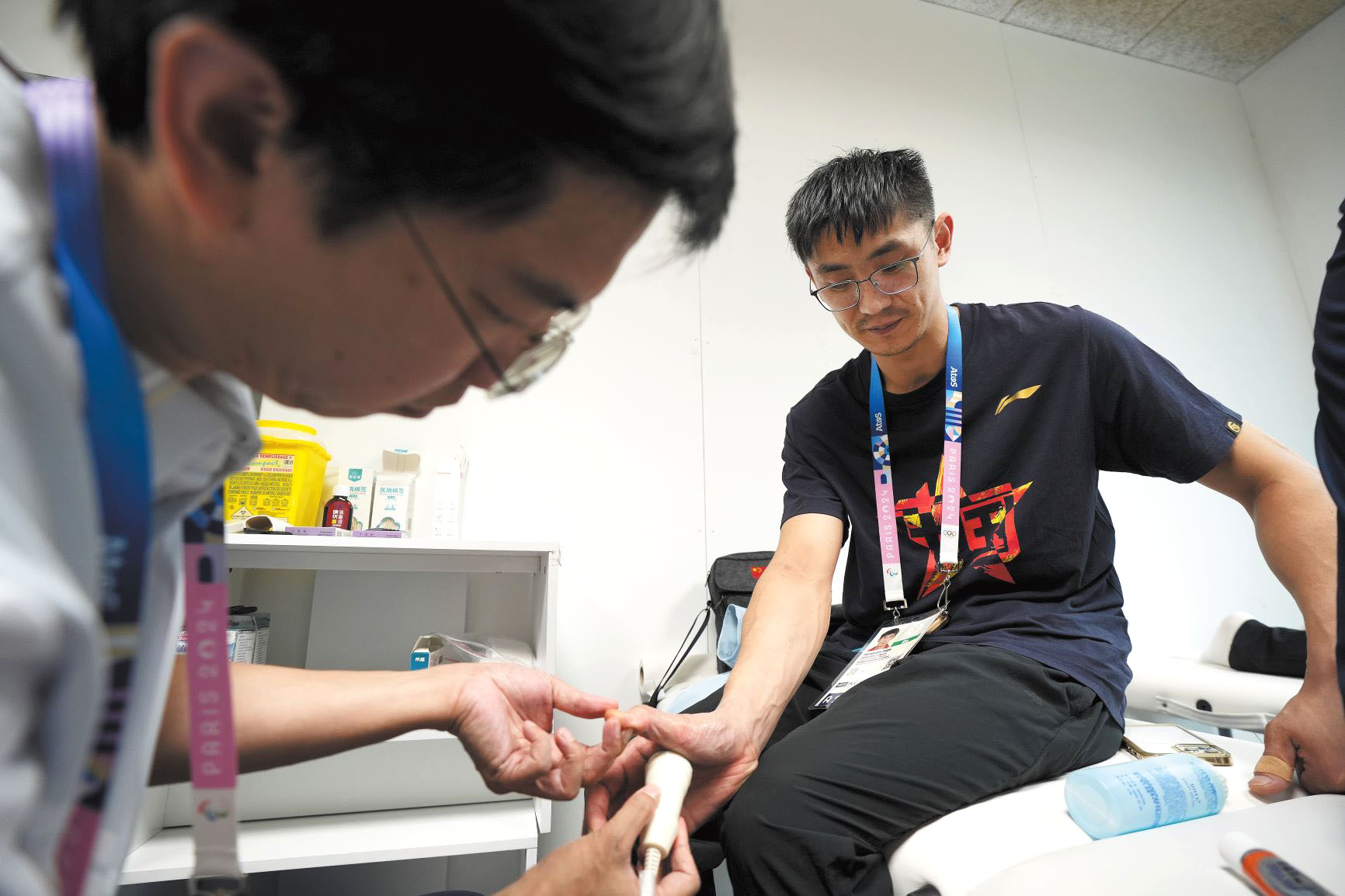
She has now returned to the sport and continues to represent Hong Kong in high-level competition. However, she has yet to achieve the results she desires.
Wong's physician, Patrick Yung Shu-hang, chairman of the Orthopedics and Traumatology Department at Chinese University of Hong Kong, said, "Such an injury would make it extremely challenging for an ordinary person to even return to normal walking, let alone for an athlete wanting to return to competition."
Renowned as a leading figure in sports medicine in Asia, Yung has treated numerous athletes, including Paris Olympics gold medal-winning fencers Edgar Cheung Ka-long and Vivian Kong Man-wai.
As high as 63 percent of Olympic athletes reported at least one significant injury related to their Olympic careers, according to the World Olympians Association's "Olympians Health Study" released in 2019. About one-third of them (32.4 percent) said they continued to experience pain, and 35.9 percent still faced functional limitations due to injuries sustained during their Olympic careers.
Jim Luk Tze-chung, an associate professor in the Sports and Recreation Department at the Technological and Higher Education Institute of Hong Kong, said increasing awareness about sports injuries has fueled the growth of the sports medicine industry, and also helped athletes unlock their potential and achieve better results.
Two decades ago, an athlete's injury could often signal premature retirement, Luk said. However, athletes today like Kong, the fencer, can overcome a knee injury through sports medicine, return to competition and win a gold medal.
Yung said a crucial aspect of sports medicine, beyond treating injuries and rehabilitation, is risk assessment, which can determine if there are risk factors for an individual's participation in a particular sport that could lead to potential injuries.
By assessing and controlling these factors through correct training and preparation, athletes can reduce their chances of getting injured, Yung said.
Lobo Louie Hung-tak, associate head of the Health and Physical Education Department at Education University of Hong Kong, said competition among elite athletes is intense, and enhancing sports rehabilitation and prevention can significantly increase their chances of success.
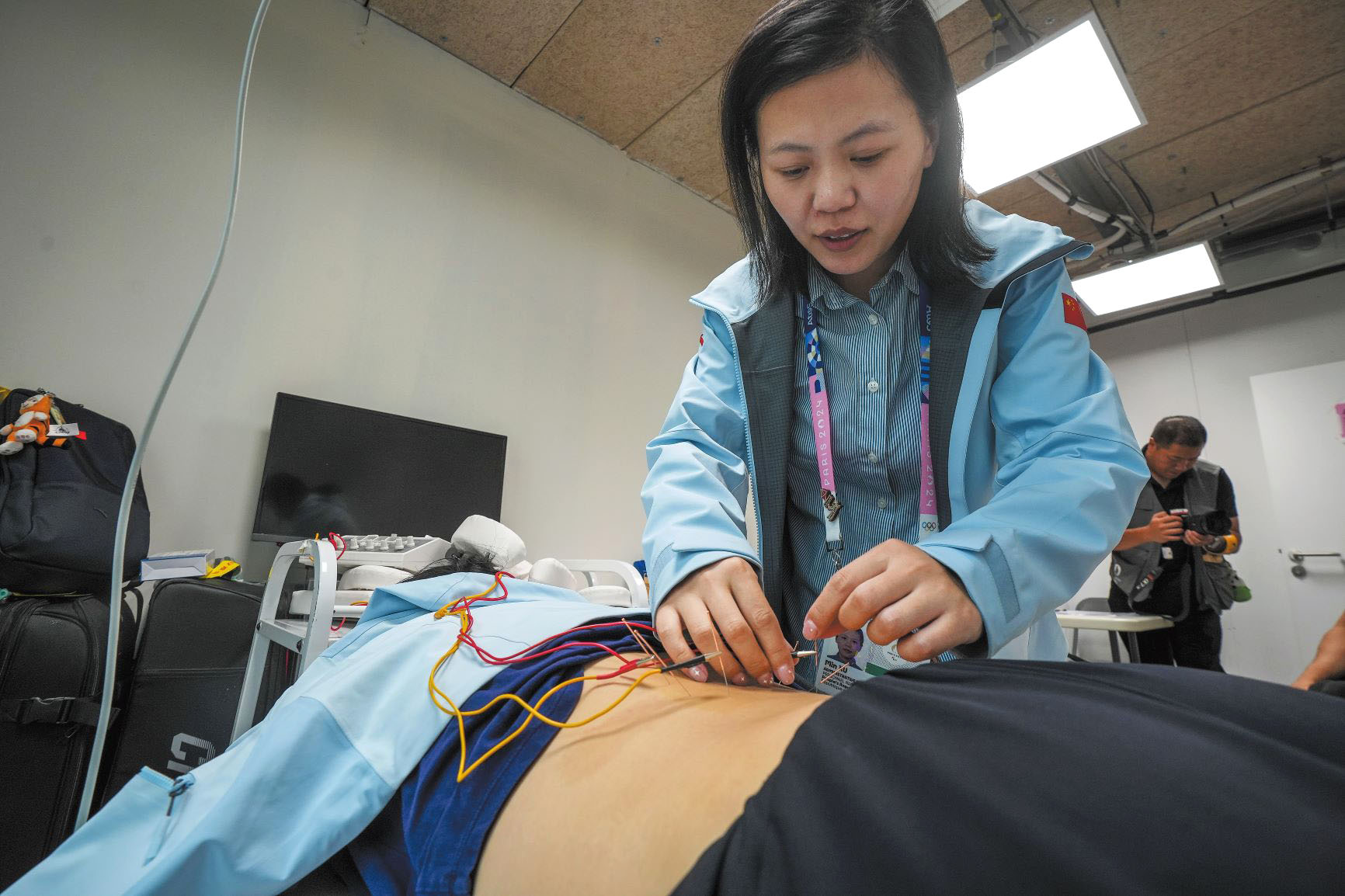
HK's leading role
Over the past 30 to 40 years, Hong Kong has been a leader in sports medicine in Asia, excelling in clinical practice, education and research, Yung said.
In 1984, the first sports injuries clinic in Hong Kong was established at Prince of Wales Hospital, which was also the first in the city to promote the development of arthroscopic surgery. The Sports Medicine and Sports Science Association of Hong Kong, established in 1988, aims to promote and advance the practice, education and research of medicine and science related to sports and exercise.
Chan Kai-ming, a professor emeritus of orthopedics and traumatology at Chinese University of Hong Kong, was elected as the first Asian president of the International Federation of Sports Medicine in 2002.
Hong Kong rehabilitation therapist Lui Yi-nok was included on the national team of therapists taking care of Chinese athletes competing at the 2024 Paris Olympics. Lui was the only such professional from Hong Kong on the team.
Lui said she was grateful for the trust shown in her and was honored to support China's top gymnasts in their quest for glory.
In 2022, she joined the national gymnastics team as the rehab therapist for Chinese gymnast Liu Yang, who was recovering from knee surgery and ongoing waist and shoulder injuries after his victory in the men's rings at the Tokyo Olympics. On Aug 4, 2024, Liu successfully defended his title at Paris' Bercy Arena, earning the Chinese team's first gold medal at the Paris Games.
However, Lui's role as a sports therapist goes beyond treating an athlete's injuries and monitoring their physical condition. Her techniques include massage, equipment therapy and muscle taping, while closely interacting with athletes to adjust their training plans, improve performance and ease discomfort.
Since graduating from the Technological and Higher Education Institute of Hong Kong in 2016, Lui has specialized in sports rehabilitation and has worked with the Hong Kong Rugby Union and the Guangdong Gymnastics Team.
Yung said collaboration enables athletes to receive more tailored and superior treatment services.
Louie, from Education University of Hong Kong, encourages students from other countries and regions to pursue sports medicine degrees in the city for exchanges and learning opportunities.
He said Chinese University of Hong Kong's master of science in sports medicine and health science program, which began in 2004 and has been running for 20 years, is a good start.
The program mainly attracts family doctors, therapists, sports coaches, physical education teachers and individuals interested in sports, Louie said. Annual enrollment is approximately 60 to 70 students.
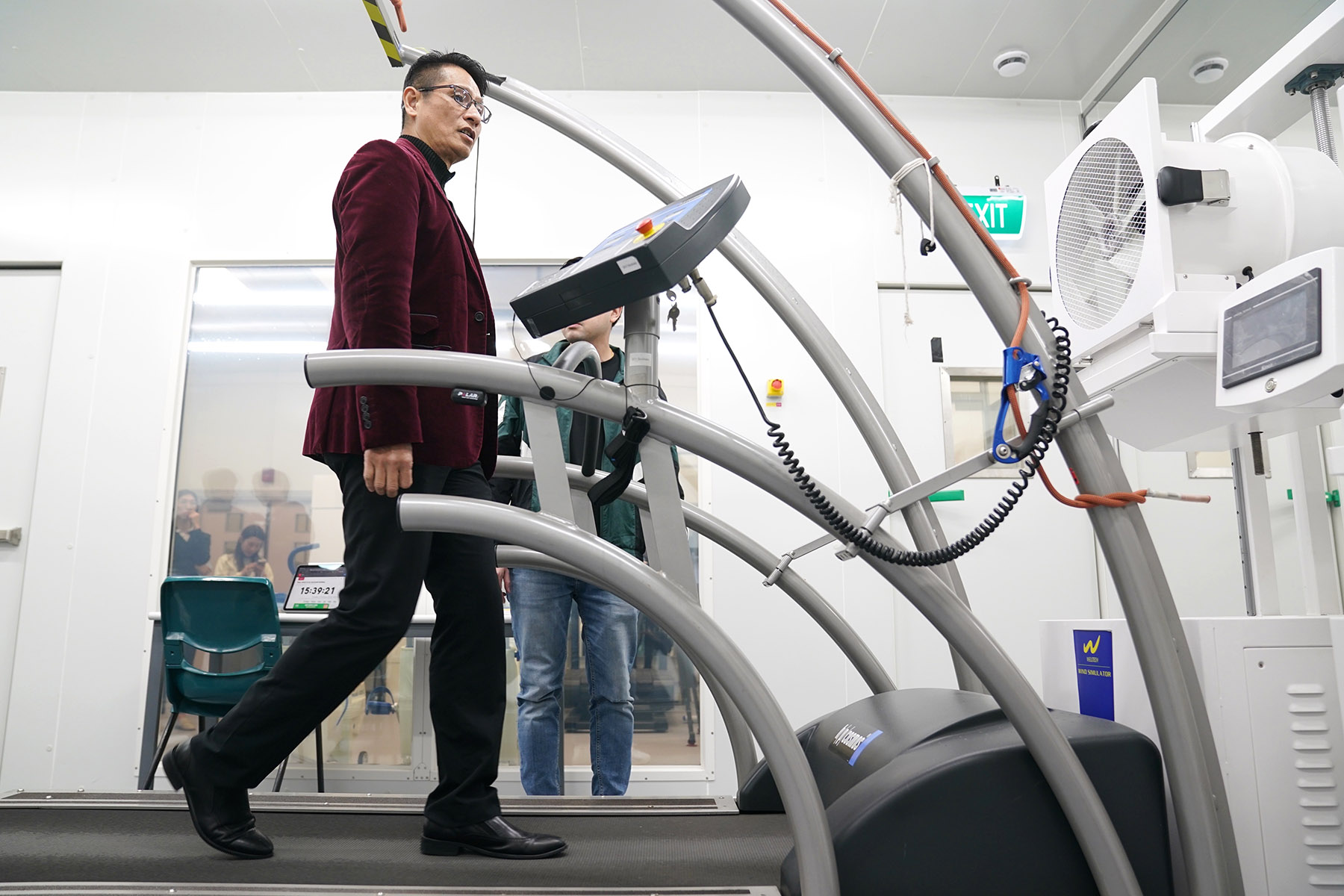
Public support boosted
Sports medicine is not only focused on elite athletes, but also helps popularize different sports among the public, Yung said.
The city's passion for sports has been boosted by the two gold medals and two bronze medals won by Hong Kong athletes at the Paris Games, as well as a multitude of major sporting events planned for this year. In November, the 15th National Games will be co-hosted by Guangdong province and the Hong Kong and Macao special administrative regions.
In addition, the 28-hectare Kai Tak Sports Park, set to open next month, will become Hong Kong's largest sports complex.
Approximately 9 percent of the general public who engage in community sports activities experience injuries, the city's Department of Health reported last year.
This statistic suggests that one out of 10 people who play badminton may sustain an injury, Louie said. The Olympic "effect" has encouraged more Hong Kong residents to participate in sports, resulting in a higher number of injuries and increasing public demand for sports rehabilitation, he added.
Louie said doctors in Hong Kong are extremely busy, and often focus on providing pain relief or treatment for sports-related injuries. However, the real goal of sports medicine is to support an individual's return to their sport during the recovery process, he said, adding that this needs to be done effectively and safely.
Yung also believes Hong Kong is lagging behind in policies related to sports medicine, and "essentially wasting the potential of our professional personnel".
For example, unlike neighboring regions where most professional soccer teams employ full-time sports doctors or physiotherapists, such roles in Hong Kong are mainly part-time, he said. Many sports teams in Hong Kong only seek assistance from relevant professionals when heading to competition.
Yung said the city should learn from the Chinese mainland, as well as Singapore and Malaysia, where sports medicine is a recognized specialist medical sector. This not only provides more job opportunities, but also boosts government attention to the area and the importance placed on sports medicine.
Louie said Hong Kong does not pay enough attention to the sports injuries of the general public and students. Establishing specialist clinics could extend professional sports medicine services to individuals beyond athletes, he said.
Besides sports rehabilitation, Yung said sports medicine can treat a number of ailments through preventive measures.
Exercise is a potent treatment for conditions like high blood pressure and diabetes, he said, adding that a doctor with a background in sports medicine can provide patients with an exercise program tailored to suit their condition.
With more residents engaging in regular physical activity to maintain good health, the cost of healthcare would also be reduced. This is expected to be a new trend in the development of sports medicine, he said.
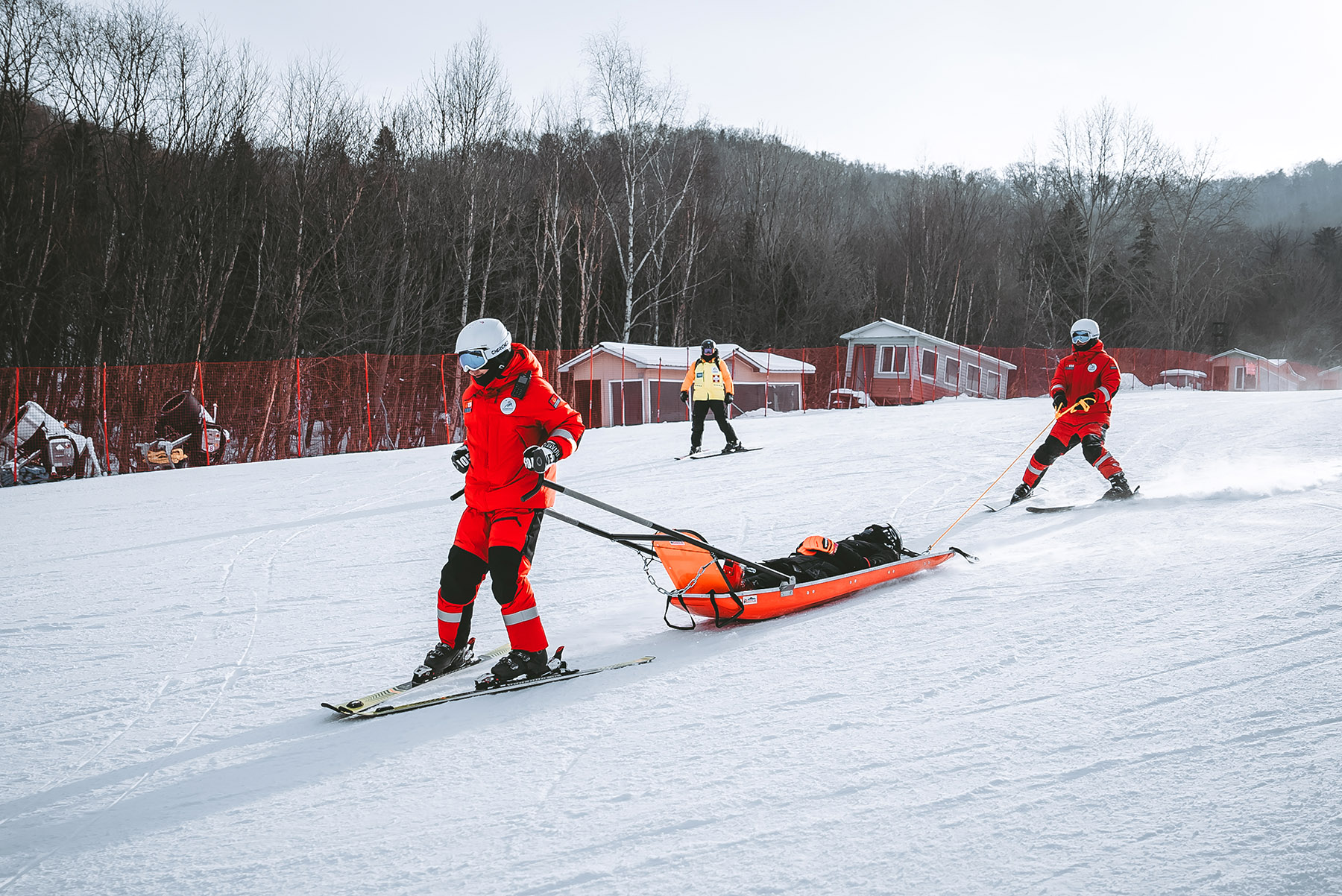
Dual roles
In the summer of 2024, Leung not only still had her sports career as a squash player, but had also enrolled as a student in the Bachelor of Science in Physiotherapy program at Hong Kong Polytechnic University.
Leung and 13 other athletes enrolled in different programs at the university offered under the Student-Athlete Learning Support and Admission program.
She said the injury she experienced not only made her realize the importance of sports medicine, but also the need for athletes to acquire knowledge to better protect themselves.
ALSO READ: CUHK opens new fitness center with smart devices to help athletes
The SALSA program was launched by the city's University Grants Committee in 2022 to support outstanding athletes who aspire to pursue "dual-track" career development at eight universities funded by the committee.
Luk said this kind of collaboration should be encouraged to not only advance the development of sports medicine professionals, but also to help athletes transition to "second careers" following retirement.
Leung said she is optimistic about her future, whether in athletics or achieved through her studies. She said she will continue to pursue her squash dream full-time while looking forward to becoming a physiotherapist so she can assist her peers.


